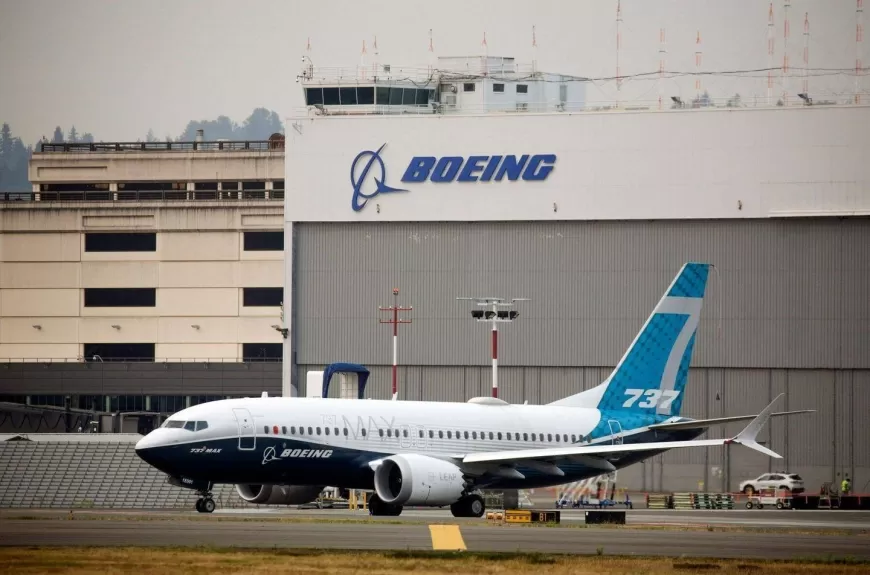Boeing Launches $19 Billion Share Sale to Secure Cash Flow and Support 737 Max Production
Boeing initiates a $19B share sale to maintain credit rating, strengthen liquidity, and support production amid ongoing labor strikes and financial strains

Boeing Co. has initiated a substantial $19 billion share sale to strengthen its financial footing, safeguard its investment-grade rating, and bolster cash reserves amid a turbulent period for the aerospace industry. The move represents one of the largest-ever stock offerings by a U.S. public company, underlining Boeing's commitment to weathering a challenging operational landscape. The sale consists of 90 million common shares and an additional $5 billion in depositary shares, as confirmed in a recent company announcement.
Based on last Friday’s closing price of $155.01 per share, the common-share portion alone would yield nearly $14 billion, marking a historic offering since SoftBank Group Corp.’s T-Mobile share sale in 2020. Boeing’s stock, however, experienced a slight drop, trading 1.9% lower in early New York exchanges. The stock has fallen around 40% year-to-date, placing it among the Dow Jones Industrial Average’s poorest performers.
If overallotments are fully subscribed, Boeing’s capital infusion could escalate to $21.8 billion, reinforcing the new CEO Kelly Ortberg's focus on rebuilding the company’s balance sheet. Ortberg, who recently took the helm, faces the formidable task of addressing years of financial strain compounded by an ongoing labor strike that has stalled production of the profitable 737 Max. As the walkout approaches its seventh week, the impact on Boeing's revenue stream is intensifying, making the capital raise essential for sustaining manufacturing and future growth once operations normalize.
The financial lifeline comes as Boeing anticipates a challenging fourth quarter, projecting a cash outflow of approximately $4 billion. This would bring the company’s cash burn to roughly $14 billion for the year, with cash constraints likely to continue through the first half of next year. The share sale, alongside a newly secured $10 billion credit facility, provides Boeing with critical resources to support manufacturing lines for high-demand aircraft like the 737 Max as it looks to stabilize.
Labor tensions have further complicated Boeing’s path forward. Last week, the company's unionized workforce voted against a contract proposal offering a 35% wage increase spread over four years. With no resolution in sight, Boeing has signaled plans for a workforce reduction of around 10% to curb operational expenses.
Boeing received regulatory clearance from the U.S. Securities and Exchange Commission on October 23 to raise up to $25 billion in equity and debt. This approval, combined with the credit arrangement, grants Boeing additional liquidity in the near term as it manages a volatile environment in both aviation and space operations. To streamline costs, CEO Ortberg is evaluating Boeing’s expansive portfolio, with plans to conclude this review by the year’s end. The ongoing assessment includes the future of Boeing’s Starliner space capsule program, which has faced delays and technical challenges.
Under the terms of the new offering, depositary shares will carry a 1/20th interest in mandatory convertible preferred stock, set to convert by October 2027 based on a pre-arranged formula. Lead underwriters for the sale include financial heavyweights Goldman Sachs, BofA Securities, Citigroup, and J.P. Morgan, with support from Wells Fargo, BNP Paribas, Deutsche Bank, and others. PJT Partners has been named Boeing’s financial advisor for the transaction.
With this strategic capital injection, Boeing aims to strengthen its cash flow and secure production stability, ensuring it can navigate the uncertainties of a volatile aerospace market.
Also Read: Boeing Plans Bond Sale Post Cash Burn and Credit Rating Cut
































































